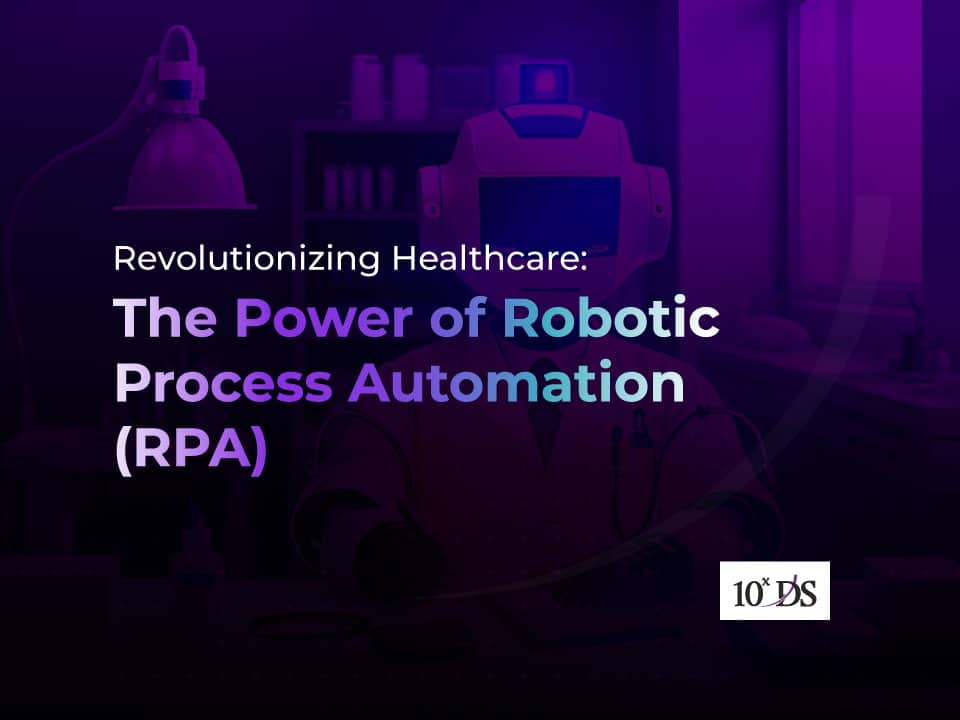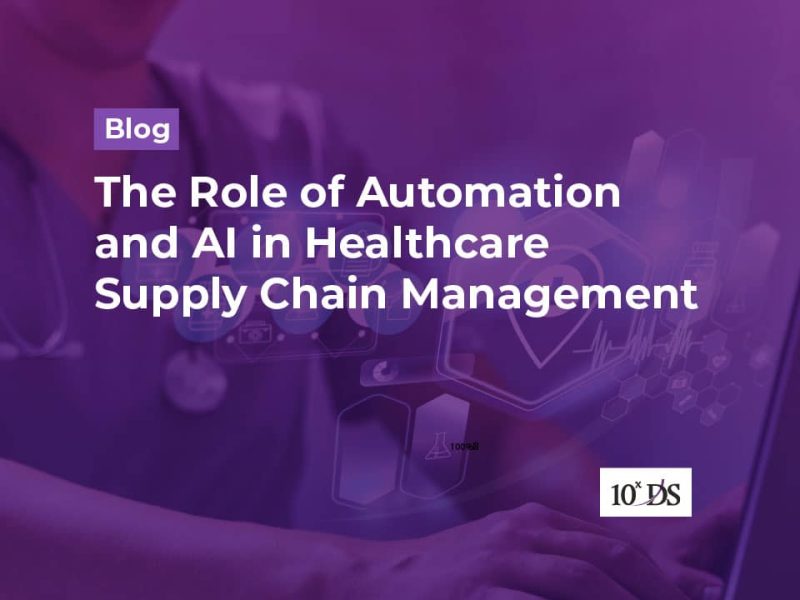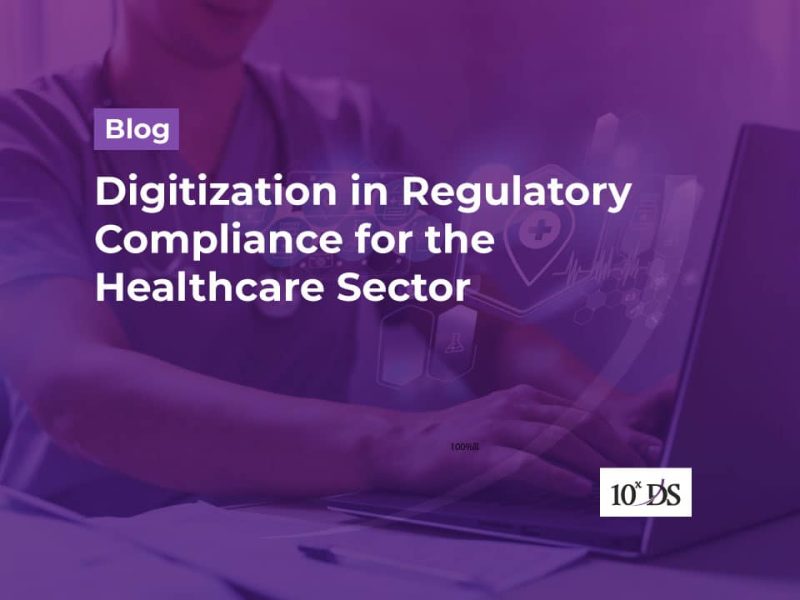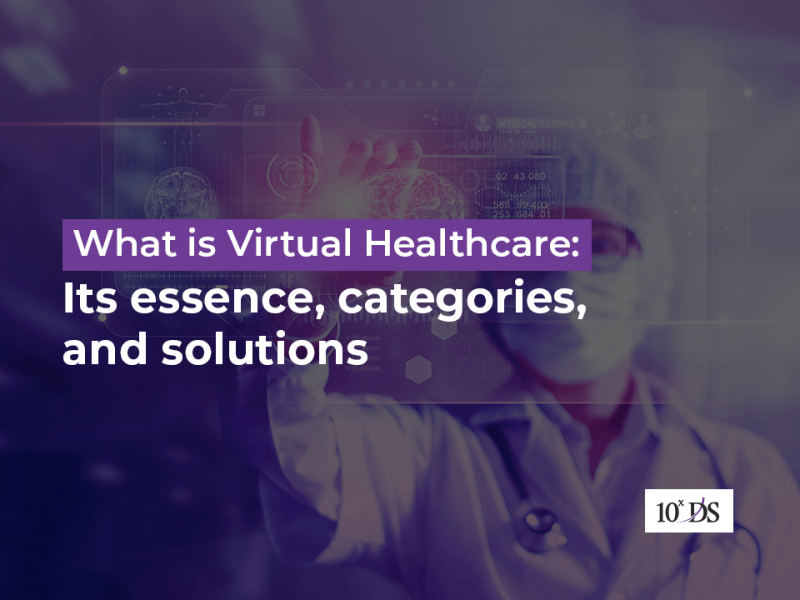
Revolutionizing Healthcare: The Power of Robotic Process Automation (RPA)
In the fast-evolving landscape of healthcare, technological advancements have become instrumental in shaping the way medical services are delivered and managed. One such groundbreaking innovation is Robotic Process Automation (RPA). According to recent statistics by Grand View Research, the global RPA market is projected to reach $3.97 billion by 2027, with the healthcare sector being a key driver of this growth. With the potential to streamline operations, enhance patient care, and reduce costs, RPA is proving to be a game-changer in healthcare management. As – Dr. Emily Carter, Chief Medical Technologist at MedTech Innovations says, ‘the future of healthcare relies on our ability to harness the power of automation to improve efficiency and patient outcomes.”
Robotic Process Automation finds its applications across various aspects of healthcare, from administrative tasks to clinical operations. Here are some key use cases:
- Appointment Scheduling and Patient Registration to reduce the workload on administrative staff and minimizes errors.
- Billing and Claims Processing for faster reimbursements and reduced revenue leakage.
- Data Entry and Management contributing to better clinical decision-making.
- Inventory Management to ensure that stock levels are optimized, and critical items are always available.
Let us analyse the use case of appointment scheduling and patient registration in detail.
Step 1: Data Collection and Verification
RPA begins by extracting patient information from various sources, such as online forms, emails, or phone call transcripts. The automation bot verifies the accuracy of the provided details, including personal information, contact information, insurance details, and medical history.
Step 2: Appointment Scheduling
Availability Check: The RPA bot accesses the electronic scheduling system and checks the availability of healthcare providers based on predefined criteria, such as specialty, location, and preferred time slots.
Patient Preferences: The bot interacts with the patient to gather preferences for appointment dates and times. It then cross-references this information with the provider’s availability to suggest suitable options.
Confirmation and Reminders: Once an appointment is scheduled, the bot sends confirmation messages to both the patient and the healthcare provider. It also sets up automated reminders through email or SMS to reduce no-shows.
Step 3: Insurance Verification and Pre-authorization
Insurance Data Processing: The RPA bot accesses the patient’s insurance information and automates the verification process by connecting with insurance portals. It confirms coverage, co-pay amounts, deductibles, and any pre-authorization requirements.
Documentation: The bot generates and updates the necessary documentation for insurance purposes, ensuring that the patient’s information is accurately recorded and ready for billing.
Step 4: Electronic Health Records (EHR) or Hospital Management System (HMS) Integration
Data Entry: RPA extracts relevant patient information from the scheduling and registration process and seamlessly enters it into the EHR or HMS system, eliminating the need for manual data entry and reducing the risk of errors.
Consent Forms: The bot can digitally present and collect patient consent forms, ensuring that legal and privacy requirements are met.
Step 5: Patient Communication
Confirmation and Instructions: The RPA bot sends out automated confirmation messages to patients, including appointment details, location, and any preparation instructions.
Pre-Appointment Screening: Prior to the appointment, the bot can engage patients in pre-screening surveys, collecting vital information about their health status and symptoms. This information is then readily available for the healthcare provider.
Step 6: Follow-up and Feedback
Post-Appointment Communication: After the appointment, the RPA bot sends post-visit surveys or follow-up messages to gather patient feedback and assess their experience.
Billing and Claims Submission: If applicable, the bot ensures that all necessary billing codes and patient information are accurately captured for claims submission to insurance companies.
Benefits of RPA in Appointment Scheduling and Patient Registration:
- Accuracy: RPA eliminates the risk of human errors in data entry and verification, ensuring that patient information is correct and up-to-date.
- Efficiency: Automation speeds up the scheduling and registration process, reducing wait times for patients and allowing administrative staff to focus on more critical tasks.
- Cost Savings: By automating repetitive tasks, healthcare facilities can reduce labor costs and allocate resources more effectively.
- Enhanced Patient Experience: Automated reminders, personalized communication, and streamlined processes contribute to an improved patient experience.
- Compliance and Consistency: RPA ensures that all patient data is handled according to regulations and consistent processes are followed.
Real-life Case Study
One notable example of RPA transforming healthcare is the partnership between NewYork-Presbyterian Hospital and UiPath, a leading RPA platform. The hospital implemented RPA to streamline its revenue cycle operations. The bots were trained to navigate electronic health records (EHR) systems, extract billing information, process claims, and flag any discrepancies. This resulted in a significant reduction in claim denials and a substantial increase in revenue collection2. The success of this implementation not only boosted financial outcomes but also allowed the hospital staff to focus more on patient care.
The Future of Healthcare with Automation
The integration of RPA into healthcare workflows is just the beginning. As technology continues to advance, the future holds even more possibilities. The future of healthcare automation is tightly intertwined with the rapid advancement of Artificial Intelligence (AI). As AI technologies evolve, they are poised to revolutionize every aspect of the healthcare industry, from diagnosis and treatment to patient engagement and administrative tasks.
Robotic Process Automation has ushered in a new era of efficiency and innovation in the healthcare sector. As the statistics indicate, its impact is on the rise, and the potential for further transformation is immense. Driven by the synergy between technology and healthcare expertise, RPA is reshaping patient care, administrative operations, and medical research. As we move forward, let us harness the power of automation to build a future where healthcare is not only more efficient but also more patient-centered and impactful.
Talk to our experts to know more.


